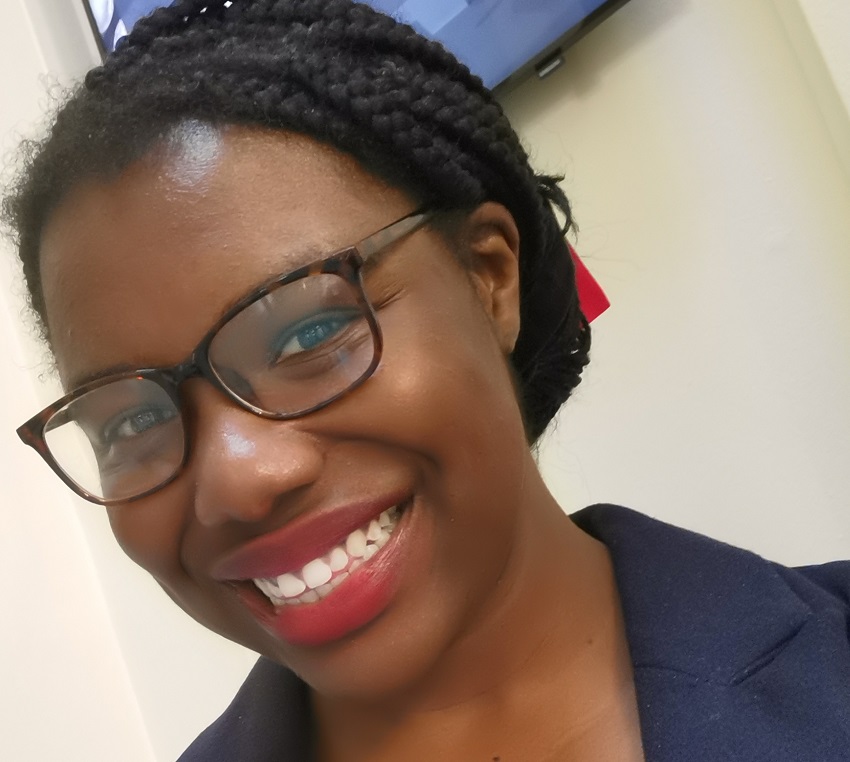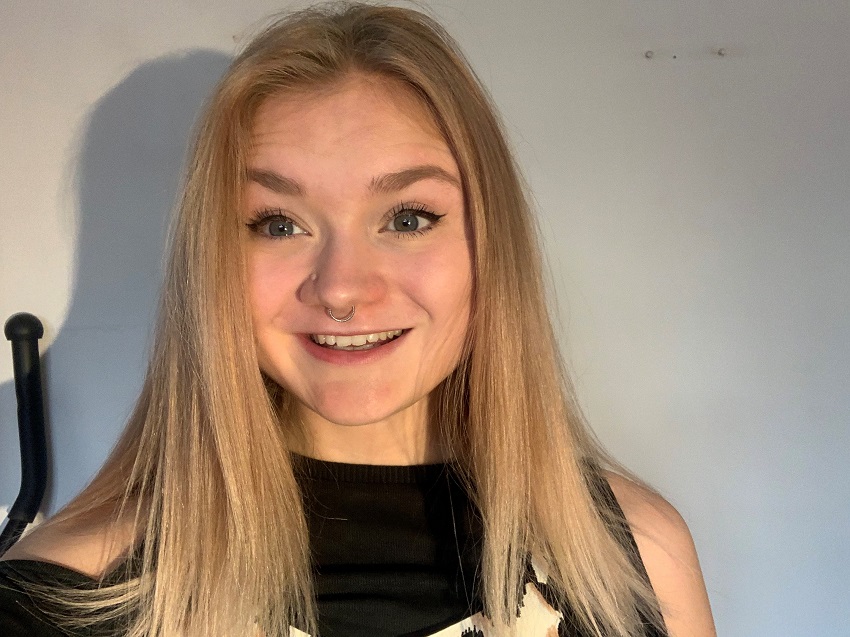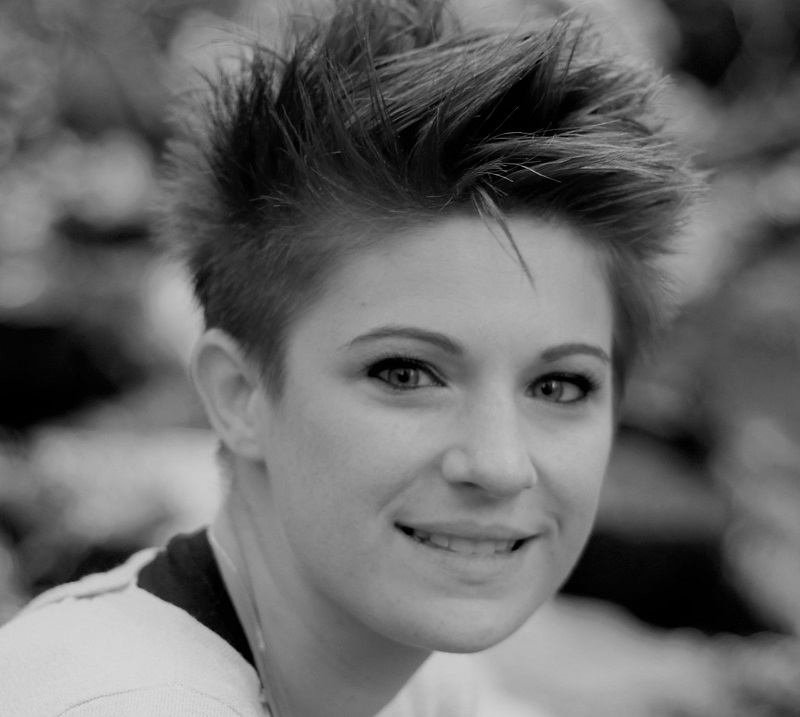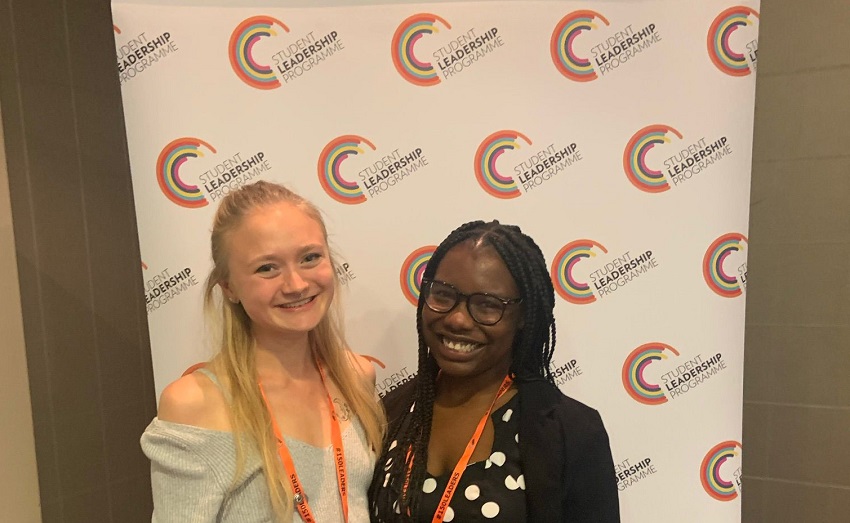Neurodivergent students and NHS staff being 'driven out of the workforce'
19 December 2022
/0x127:950x773/prod01/channel_3/media/middlesex-university/news-section-images/2022/Emilie-and-Nicolette-SNTA-2022.jpg)
Autistic midwifery researchers including a Middlesex University lecturer and graduate have spoken of the challenges they have faced at university and in the workplace
Three autistic midwifery researchers are calling on the NHS to provide better support for neurodivergent students and workers who they fear are being driven out of the workforce amid a crisis in NHS staffing.
Midwife Nicolette Porter and Midwifery Lecturer Emilie Edwards along with student Sophie Rayner have made recommendations on how universities and NHS employers can help and understand neurodivergent students and staff.
Neurodivergent means “diversity of the mind” and is the idea there are variations in human populations which result in neurodevelopmental differences such as Autism Spectrum Condition (ASC), Attention Deficit Hyperactivity Disorder (ADHD), dyslexia, dyscalculia, among others.
"The NHS is at the moment, in crisis, with huge parts of the workforce which is missing and thousands of midwives needed to inject life into the system and yet we’re haemorrhaging staff because of the work conditions. And if you add neurodiversity to the work conditions, the likelihood is they’re going to leave because they’re not getting the support they need.” Emilie Edwards, Lecturer in Midwifery.
Here, in their own words, Nicolette, Sophie and Emilie describe their lived experiences and how employers and universities can address the issue.
Nicolette Porter, (below) a midwife at a hospital in east London, won the Student Midwife of the Year at last year’s Student Nursing Times Awards and graduated from Middlesex University in north London with a BSc in Midwifery.
She said: “I’m really passionate about autism advocacy and showing how neurodivergence isn’t incompatible with a successful career in healthcare. In fact, our differences can mean that we bring a valuable insight to our professions as diversity is so important.

“As an autistic student, and now qualified midwife, I have found working in the hospital difficult at times due to the unpredictability, challenging sensory environment with bright lights and constant loud noises and hectic changeable schedule with no two days being the same.
“It’s important to work with your manager and occupational health team to discuss your experiences and implement reasonable adjustments in the workplace. Everyone is different, so these adjustments depend on the individual.
“Central to our discussions surrounding neurodiversity in the workplace should be recognising the value that each member of our team brings, celebrating these differences, and supporting each other to perform at our best in the workplace.”

Sophie Rayner, (above) a third-year student midwife at the University of Leicester studying an undergraduate MSci in Midwifery with Leadership, is part of the Council of Dean’s Student Leadership Programme and undertook a research fellowship funded by the Wellcome Trust.
She said: “Autism is a form of neurodiversity typically defined by deficits in social communication and restricted or repetitive behaviours and interests. I don’t see my autism as a deficit, but a difference.
“Sometimes, that difference enhances my ability as a student midwife and sometimes it limits it. “I know being autistic has amazing strengths for my degree: I have hyper-fixations and special interests that mean I learn deeply about certain subjects; I enjoy studying and assignments. I have a unique aptitude for spotting patterns in learning and practice and I am hyper empathetic.
“After seriously considering dropping out throughout my first year, I can now appreciate my strengths and passions.
“I also struggle, however. Whilst my tutors are aware and supportive, disclosure in placement can be difficult. I often get sensory overload and have meltdowns after shifts. I often ‘mask’ my autistic behaviours, but this is exhausting.
“Add to this the constant sensory bombardment of a hospital: buzzers, shouting, different smells, bright lights etc; sometimes I am pushed over the edge. This is when I can become despondent or shut down.
“It's difficult for supervisors to understand this or accommodate me when I need to get away. “I’m becoming more aware of my cues and warning signs of autistic burnout, and I endeavour to be safe. I’ll take a seat to calm down if I need it, but staff can’t always comprehend this as coping skills rather than laziness. I know what I need to help me succeed, but it requires increased awareness and the ability to accommodate disability.”

Emilie Edwards, (above) a former independent midwife and Lecturer in Midwifery at Middlesex University, won the Educator of the Year Award at the 2022 Nursing Times Award when she was hailed a “huge advocate for neurodivergent issues”.
She said: “We are hoping to shine a light on a community of neurodivergent healthcare workers and students who are not spoken about and lost in the system. It is leading to huge levels of attrition within the student and also healthcare populations.
“We need to make sure that health care workers and students have the correct support to stay in this environment. This starts at university and with reasonable adjustments and support which continues into their work life and also extends to how they look after neurodivergent people in their care.
“All three of us have been students and healthcare workers and gone into the system and we know how hard it is so we’re talking about lived experience and there are not many autistic midwifery researchers out there.
“This is still a taboo subject, and a lot of employers actively say when asked they would not employ somebody who is neurodivergent.
“One in two employers would rather not employ someone who was autistic, had ADHD or Tourette’s Syndrome and then this leads to the figure of only 16% of autistic people in full time employment, so it’s a massive issue.
“We believe the percentage of neurodivergent people in the healthcare profession is higher than the normal working population because neurodivergent people are normally really attracted to caring roles, this is where they find their forte because they are very empathetic.
“You have a high percentage of the work population which is not being looked after within their workspaces and then they’re leaving because they’re burning out. And if you think about where the NHS is at the moment, in crisis, with huge parts of the workforce which is missing and thousands of midwives needed to inject life into the system and yet we’re haemorrhaging staff because of the work conditions. And if you add neurodiversity to the work conditions, the likelihood is they’re going to leave because they’re not getting the support they need.”

In a recent research paper Emilie, Nicolette and Sophie made the following recommendations:
In university:
- Relevant disability services should be signposted to all students and be accessible, offering support from enrollment.
- Develop a flexible, yet consistent syllabus. Teach using different modalities and offer alternatives assessment styles, recognising there are different ways of demonstrating knowledge.
- Make learning objectives and their rationale clear.
- Diversify methods for student participation.
- Repeat key concepts to assist students with processing information.
- Get to know your student’s behavioural style and their ‘normal’. Non-participation does not always mean lack of interest; processing, formulating questions/answers, anxiety and distress may present similarly.
In practice:
- Communicate clearly and directly: avoid complex euphemisms.
- Provide constructive feedback, with an identifiable structure as to how to improve work: in a private space and in one-to-one sessions.
- Offer planning and stress management tools for practice placement
- Additional support for documentation, as this can be a complex skill for Neurodivergent students to apprehend, particularly when required to multitask.
- Develop disability awareness training and a stable point of contact for students in placement.
Their research paper - "How can midwives and educators better understand, teach and support neurodivergent students?" – and another recent article - Providing sensitive antenatal care for autistic women and birthing people – which have both been peer reviewed and published in The Practising Midwife Journal (PMJ).
Find out more about studying Midwifery at Middlesex University.


/0x141:4032x2884/prod01/channel_3/media/middlesex-university/news-section-images/2025/Prince-Kamari-with-George-and-faculty-colleagues.jpg)
/11x0:1030x693/prod01/channel_3/media/middlesex-university/news-section-images/Mirabela-London-Fashion-Week-for-web.jpg)
/8x0:1033x697/prod01/channel_3/media/middlesex-university/news-section-images/Moot-Court-1.jpg)